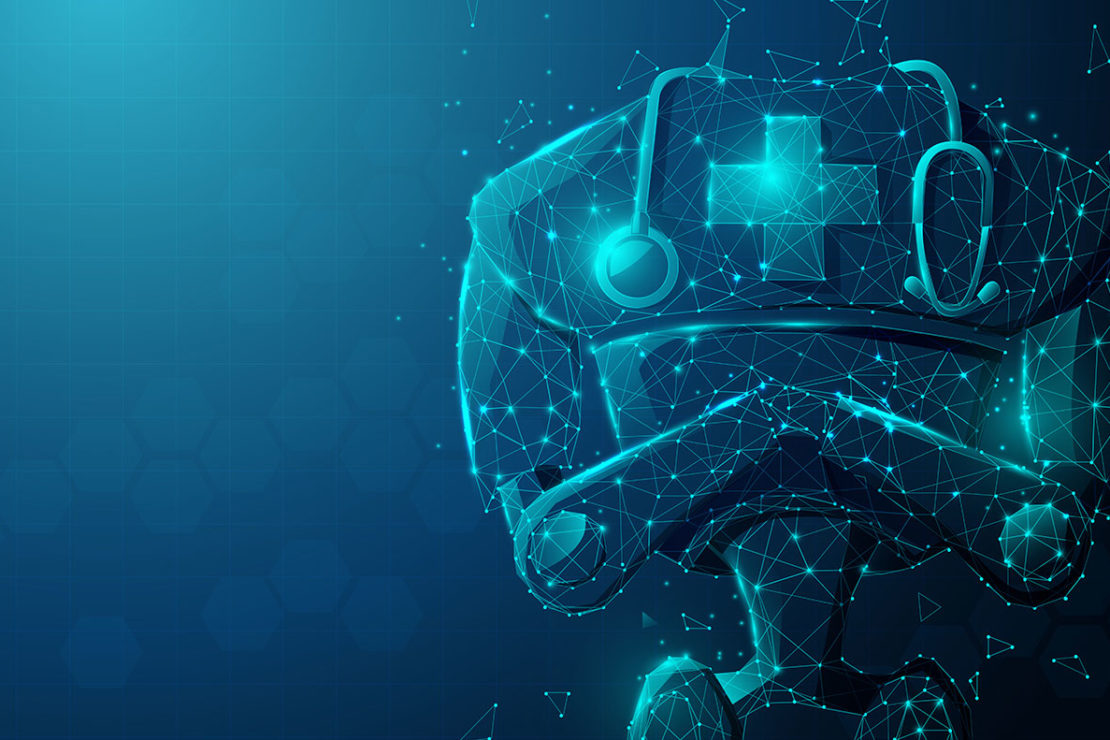
We always overestimate the change that will occur in the next two years and underestimate the change that will occur in the next ten.
Bill Gates, 1996
Artificial Intelligence has observed a boom for quite a while now. More so, post the COVID crisis. With businesses and individuals shifting towards digital alike, the demand for AI is predicted to rise. According to Frost & Sullivan, AI systems are projected to be a $6 billion industry by 2021. A recent McKinsey review predicted healthcare as one of the top 5 industries with more than 50 use cases that would involve AI, and over $1 billion already raised in start-up equity. For a country like India, adapting to AI would be a huge step towards progress.
Let’s begin with the basics: What is AI?
Artificial Intelligence is defined as the process of making a machine adapt to the actions of humans. Rather, not just adapt but remember, memorize, learn and form habits as well. Through ‘machine learning’ (ML), AI provides techniques that uncover complex associations that cannot easily be reduced to an equation. AI, as a technology has been the part of many organizations for quite some years now, especially the big giants like Facebook, Google and the likes.
At a high level, artificial intelligence can be split into two broad types: narrow AI and general AI.
Narrow AI is what we see all around us in computers today: intelligent systems that have been taught or learned how to carry out specific tasks without being explicitly programmed how to do so.
This type of machine intelligence is evident in the speech and language recognition of the Siri virtual assistant on the Apple iPhone, in the vision-recognition systems on self-driving cars, in the recommendation engines that suggest products you might like based on what you bought in the past. Unlike humans, these systems can only learn how to do specific tasks, which is why they are called narrow AI.
AI: The benefits
For a world adopting social distancing and a one that is digitizing at a quick pace, there’s no denying that this is indeed what the future holds for us. Here are some of the many benefits, pros and advantages that will come with it:
- CAD (Computer-aided Detection), patient self-service and chatbots, and image data analysis to identify candidate molecules in drug discovery, AI is already at work, increasing convenience and efficiency, reducing costs and errors, and generally making it easier for more patients to receive the health care they need.
- While NLP and ML are already in use, they will become increasingly important to
- Improve provider and clinician productivity and quality of care
- Enhance patient engagement in their care and streamline patient access to care
- Accelerate the speed and reduce the cost to develop new pharmaceutical treatments
- Personalize medical treatments by leveraging analytics to mine significant, previously untapped stores of non-codified clinical data
- While each AI technology can contribute substantial value alone, the massive potential lies in the synergies generated by using them together across the entire patient journey, from diagnoses to treatment, to ongoing health maintenance
Conclusion
Artificial Intelligence, also known as AI, is all set to bring a drastic change worldwide. Newer job opportunities and careers would open, language barriers would break down and the scope of manual errors would be reduced to the minimum. As for the healthcare industry, people will soon experience better care, enhanced hospitals and evolved hospitality.



Why Practice Social Distancing?
Amidst this lockdown, many are still asking the question about “Social Distancing”. As per the scientists, finding the cure or medicine for COVID-19 it may take about 12-18 months to find it. Hence. To prevent the spreading of this virus social distancing is the most effective way to do it.
Let's start by explaining what is social distancing, it is a conscious and deliberate choice of maintaining the distance of six feet from the people around us, to prevent the spreading of COVID-19.
To understand better the impact of it, here is a small visual to explain how the virus will spread if social distancing is not paid attention.
Social distancing is so effective right now that as an individual we all are contributing in the prevention of spreading this deadly virus.
There is another major concern that is coming into the picture with the rapid increase in the coronavirus patients. Hospitals around the world do not have enough resources to tackle this pandemic, there are limited numbers of healthcare facility in all the countries around the world.
The coronavirus outbreak in Italy has shown, the faster rate of the population getting infected by it and to tackle with it, there are not enough medical resources like hospital beds, ventilators and doctors. This will be challenging for the healthcare to save lives leading to exponential rise in number of deaths.
Hence, social distancing is the most effective way to "flatten the curve" or reduce the spread of this coronavirus.
What does flattening the curve means?
The researchers have projected a graph to understand the impact of the spreading of coronavirus against the number of hospital beds. Though this is a theoretical graph, it does show how quickly the capacity of healthcare can come crashing down which can make COVID-19 an epidemic, hard to deal with.
This curve indicates, if the same number of people are getting at a slower rate over a longer period of time, then it reduces the pressure on the healthcare system and making it easier to treat everyone, hence, a lesser number of deaths.
Therefore, just by taking small measures individually, like maintaining social distance, washing hands frequently, avoid going out in crowded places, and spend maximum time inside the house. We all can contribute a collective to fight against this deadly coronavirus.